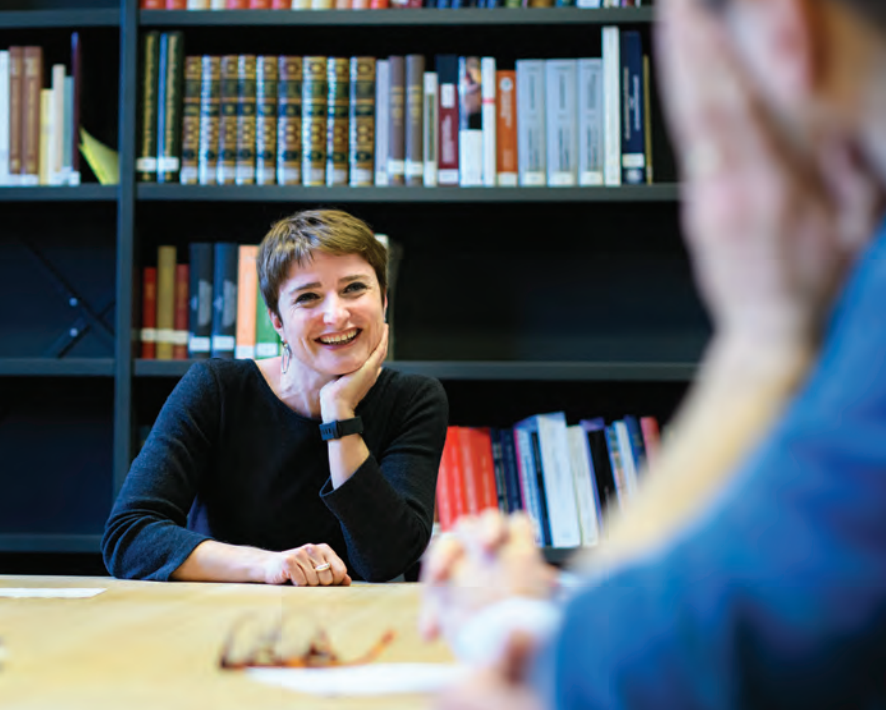By Jo Fox, Director of the IHR
Recent discussions with historians in the UK and overseas make clear the impact that the COVID-19 crisis is having on research infrastructures in many universities, and more broadly. This has significant implications for us all, but is especially serious for early career researchers who now face the loss of many career development opportunities.
Here Jo Fox outlines the challenge we face – together with the Institute’s response as it pivots, with other partners, to address these needs in the coming months.
The challenge we face
It perhaps does not need to be said that our research environments have changed profoundly over the past eight weeks: our archives and libraries remain closed; we cannot meet in person to share ideas and engage with new research; and, very likely, our research plans over the summer are delayed or on hold.
The IHR’s doors closed in March, and will remain closed for the foreseeable future. We are making plans to reopen the IHR in due course, but it is very likely that we will be socially distancing for some time to come.
That does not mean that we cannot provide for the discipline in other ways.
Since we closed, the IHR Library has created and launched an online Guide to free and open access historical resources to help historians — especially MA students writing theses — to find research materials. We’ve also opened up other digital resources, such as the 200 volumes of premium content within British History Online, and we have begun to plan a new online events programme.
Through this process, we have discovered new ways of working that we know will be relevant beyond this current crisis, and this has given us pause for thought as to our future.
What has become abundantly clear is that the IHR is now more important than ever. Local research infrastructure, especially in the humanities, is coming under immense pressure, and the IHR is here to shore up research opportunities and networks. Early career opportunities are being lost, at a time when there is already considerable concern over precarity.
This is, of course, an unfolding story, and we are only just learning ourselves about how to support researchers in this new environment. We need to know what has been lost in our research cultures, and what we might build on, so that we can ensure that we’re supporting our research communities as best we can. Sharing intelligence is key. Together with our partners, such as the Royal Historical Society and the Historical Association, the IHR will create over the coming months online opportunities to converse with and listen to members of the historical profession and beyond.
Responding to the challenges many now face is a collective responsibility. It is a time for researchers to come together to pool our resources and co-ordinate our activities – so please do also get in touch with myself or other IHR departmental heads if you have ideas as to initiatives you would like to run. We will support you as best we can.
IHR priorities and responses
In the first instance, the IHR has resolved to pivot our activities so that we are in a better position to provide for an active and supportive research environment under these new circumstances.
To this end, from now — and in the coming months — we will be active in the following areas:
1. National seminars
In September, we will be launching a funded scheme to extend the IHR seminars nationally. We have all discovered, over the past weeks, the potential of online seminars to bring researchers together from further afield, in greater numbers, and in ways that are more sensitive to work-life balance and to the environmental cost of travel.
We will be inviting bids for new online seminars series that may be convened from anywhere in the UK, that bring together researchers from a minimum of 3 institutions (one may be international, and we would welcome cross-sector partnerships, from for example, the heritage or GLAM sectors). These seminars will be renewable for up to three years. Further details of the scheme will be announced via this blog and the IHR’s social media channels shortly.
2. Online resources
We will extend our collation of open access resources for researchers, providing particular support for early career researchers, and we will be exploring the possibilities of acquiring new licences to open up content through our library. In addition to the IHR Library’s new Guide, and British History Online, we will continue to extend and update a range of our existing digital resources — including a growing number of Open Access publications.
3. Early career support
We are particularly conscious of the lost opportunities over the coming months for ECRs. We will be running a free CV building and training programme for Early Career Historians. This will combine structured training opportunities (on publishing articles and monographs, to applying for jobs, presenting online, enhancing your research profile, podcasting etc.), alongside informal networking spaces.
We are exploring the possibility of extending our virtual research internships (we already have an active programme within our Centre for the History of People, Place and Community), and advertising paid opportunities for ECR researchers to build their skills and CVs in research-focused contexts.
4. Supporting one another
We know the importance of sharing intelligence and good practice, and to this end, we will be bringing people together to talk through challenges, support one another, and devise collective solutions to the challenges we face. We are currently planning sessions for Directors of Post-Graduate Research, History librarians, and scholarly societies, and there will be more to come.
5. Events
We are currently planning a series of events to run from June 2020 until January 2021, bringing us together to debate live issues. We will be launching this programme shortly, but highlights include panel discussions on how historians will interpret the COVID crisis, how historians are contributing to policy solutions now, and how our archives and museums are collecting contemporary histories of COVID.
6. Piloting new ways of working
We will be supporting researchers in new ways of working by providing online training sessions that help us all to acquire the skills we need in the future. We will be piloting new international collaborations, such as international research seminars and workshops, with some specifically designed to provide CV building opportunities for early career historians to connect with international scholars in their research areas. Through these activities, we will be finding out what works online and what does not, and sharing our findings with colleagues across the discipline.
7. Advocacy
We will need to advocate for supporting historical research, now more than ever. So, we will redouble our efforts, in collaboration with our partners, to talk to funding councils, to share intelligence, to use our networks to ensure that support for historical research, and for the humanities, is protected.
***
We will be releasing details of all these initiatives in the weeks to come. The IHR exists to ensure the health of historical research, supporting researchers wherever they are to be found. It is a role that continues to have critical importance, now more important now than ever, and we intended to fulfil it to the best of our ability.

Jo Fox is Director of the Institute of Historical Research and Professor of Modern History at the University of London.
To keep in touch with further announcements, follow the IHR on Twitter, keep up with our blog, ‘On History‘, or subscribe to our monthly e-bulletin with Institute news and initiatives.

